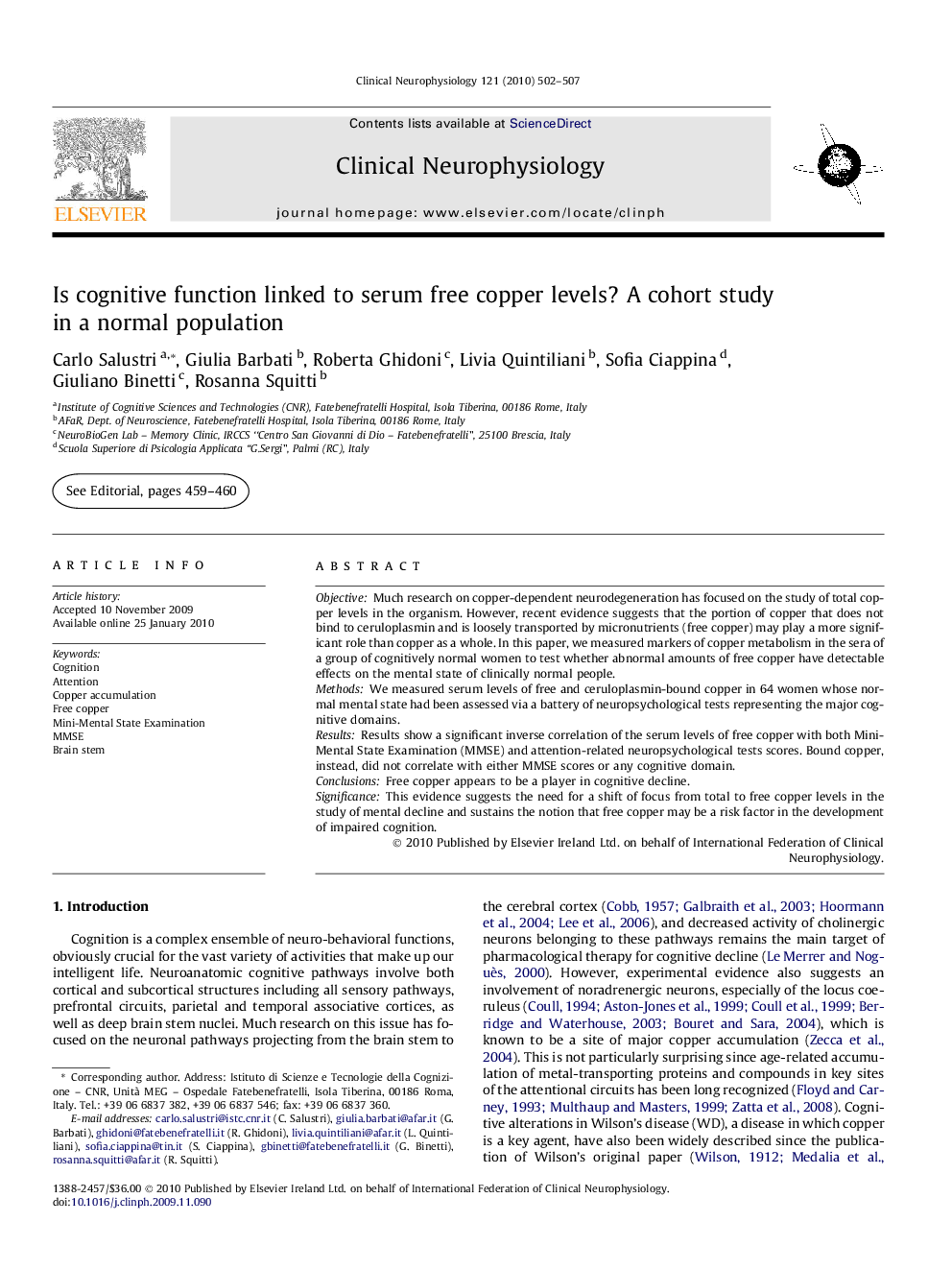| Article ID | Journal | Published Year | Pages | File Type |
|---|---|---|---|---|
| 6009190 | Clinical Neurophysiology | 2010 | 6 Pages |
ObjectiveMuch research on copper-dependent neurodegeneration has focused on the study of total copper levels in the organism. However, recent evidence suggests that the portion of copper that does not bind to ceruloplasmin and is loosely transported by micronutrients (free copper) may play a more significant role than copper as a whole. In this paper, we measured markers of copper metabolism in the sera of a group of cognitively normal women to test whether abnormal amounts of free copper have detectable effects on the mental state of clinically normal people.MethodsWe measured serum levels of free and ceruloplasmin-bound copper in 64 women whose normal mental state had been assessed via a battery of neuropsychological tests representing the major cognitive domains.ResultsResults show a significant inverse correlation of the serum levels of free copper with both Mini-Mental State Examination (MMSE) and attention-related neuropsychological tests scores. Bound copper, instead, did not correlate with either MMSE scores or any cognitive domain.ConclusionsFree copper appears to be a player in cognitive decline.SignificanceThis evidence suggests the need for a shift of focus from total to free copper levels in the study of mental decline and sustains the notion that free copper may be a risk factor in the development of impaired cognition.
